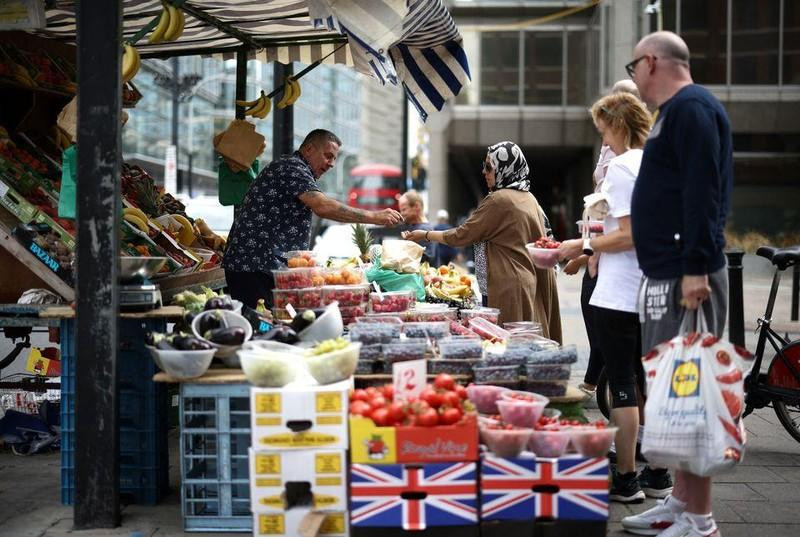In the past weekend, in the announcement of the UK’s medium-term fiscal plan before the House of Commons, UK Finance Minister Jeremy Hunt said the OBR assessed the UK is in a recession. Earlier, data from the UK Office for National Statistics (ONS), showed that the UK economy shrank in the third quarter of 2022, which could be the start of a prolonged recession. According to the ONS, the UK's Gross Domestic Product (GDP), from July to September dropped 0.2%, following a modest increase in the second quarter of 2022. Meanwhile, the Bank of England (BoE) has also expected the UK economy to contract in the final quarter of 2022, which means the economy is in recession and the economic slowdown continues until mid-2024.
The inflation storm" has been taking place seriously in the UK, not only creating a great challenge for the economy but also pushing millions of people into difficulties.
Meanwhile, the "inflation storm" has been taking place seriously in the UK, not only creating a great challenge for the economy but also pushing millions of people into difficulties. The OBR on November 16, announced that the consumer price index (CPI) in October 2022, increased by 11.1% over the same period last year, marking the highest level since October 1981 and a sharp increase from 10.1 % in September this year. Inflation implies that low-income households are facing a heavy burden, as energy and food make up the majority of their spending amid rising food and non-alcoholic beverage prices, with the fastest rate since 1977.
The UK's economic outlook in the coming years is also not positive when important indicators are forecasted to be rather gloomy. The UK’s inflation is forecast at 9.1% this year and will remain around 7.4% next year. The unemployment rate will increase from 3.6% today to 4.9% in 2024, before falling to 4.1%. The UK's GDP will shrink by 1.4% in 2023 before growing by 1.3%, 2.6% and 2.7% in the next three years, according to experts from the British Ministry of Finance. The OBR said Britain's public finances had deteriorated since March, following the conflict in Ukraine, which led to a weaker economic outlook, higher borrowing costs and increased public spending.
The UK's economic outlook in the coming years is also not positive when important indicators are forecasted to be gloomy.
Like other European countries, the UK economy is facing many challenges, when gas prices are high due to the impact of the conflict between Russia and Ukraine, congested supply chains and labour shortages, etc. However, in explaining the cause of the UK's economic decline, analysts said that Britain is still "paying" for Brexit. In her statement on November 16, Swati Dhingra, a member of the Monetary Policy Committee of the BoE, affirmed that it is undeniable that UK trade is falling much more than other countries in the world and the cause is Brexit.
Meanwhile, the Bank of England Governor Andrew Bailey, said the BoE remained steadfast in its initial projections after the referendum in June 2016, which warned that Brexit would shrink the UK’s economy. Analysts pointed out that in addition to trade, the size of the stock market is also an example of the negative impact of Brexit on the UK economy. Last week, new data from Bloomberg showed that the Paris stock market has outstripped the total value of the London stock market, from 2.823 billion USD to 2.821 billion USD. In 2016, London-listed stocks were worth 1.5 trillion USD more than shares listed in Paris.
The pound now depreciates more than the euro against the dollar in the money market and many British financial officials regret that without Brexit, the government would have enough financial capacity to solve current problems. The UK economic downturn and the above "post-Brexit" difficulties are posing great challenges to Prime Minister Rishi Sunak and his government, to "rescue" the economy with a new budget plan. The UK's economic difficulties and losses will certainly make other EU members consider more carefully the decision to leave the "common roof" of Europe in the future.
















